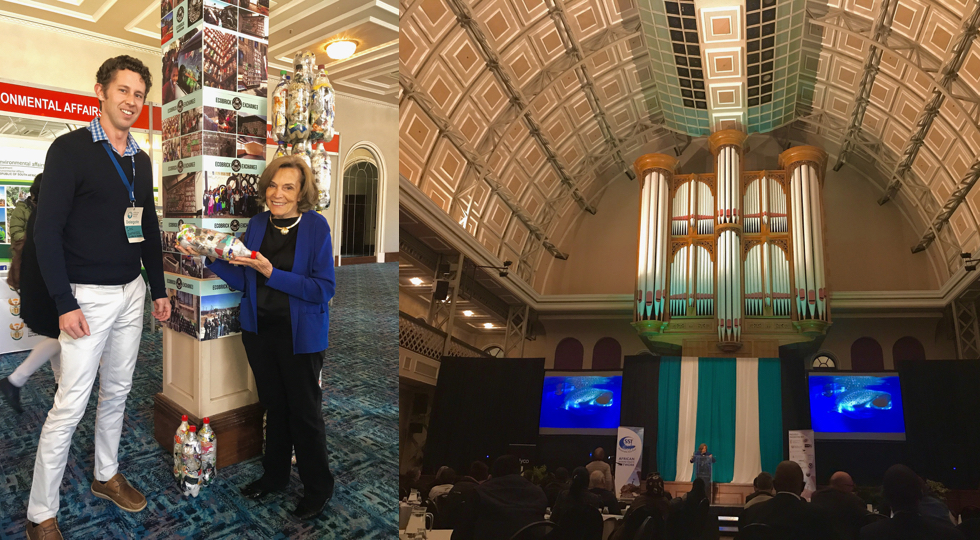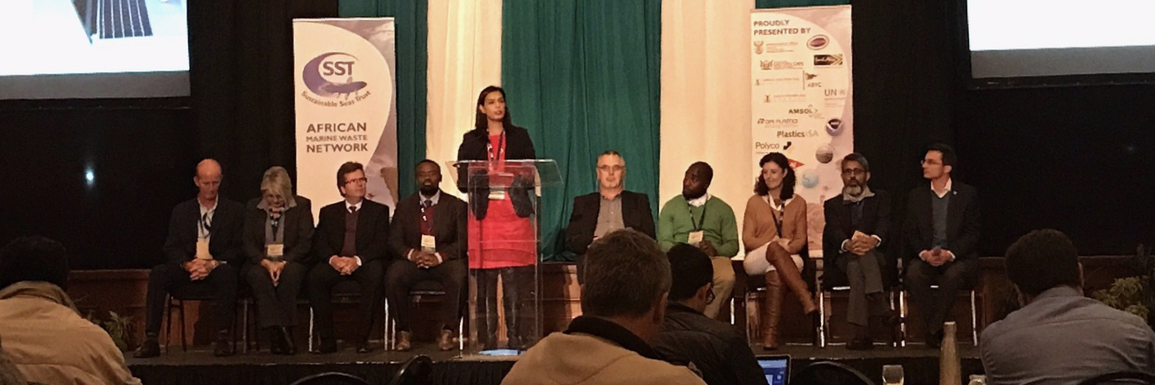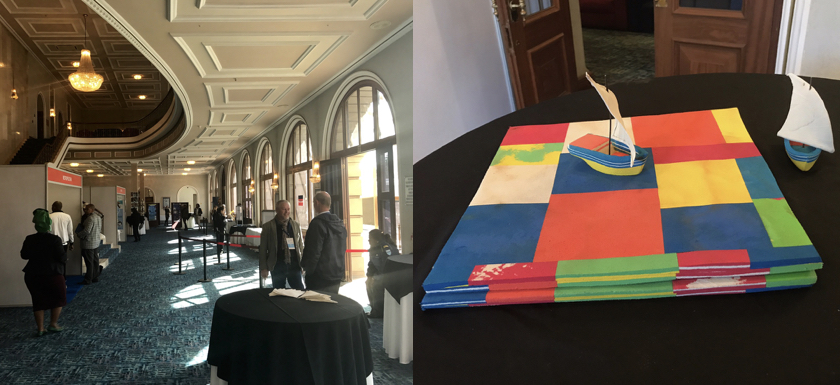The Sustainable Seas Trust recently facilitated its inaugural African Marine Waste Conference in Port Elizabeth’s Feather Market Hall and I’m excited to share my experience of it. The four day event was crammed with fascination, fresh information, firsthand accounts from the coal face of marine protection and insights from global experts.

I must admit that when it comes to the state of the environment my coping strategy is that of an ostrich - I prefer to bury my head in the sand in order to keep working. During the first day this was not possible and in order to escape my downward depression cycle I clutched the conference programme and scanned its pages for stories of successful intervention and solutions. The brutal facts were sharpening of the ‘why’ behind our work and I directed my acceptance path through the denial phase.

Instead of jumping straight to the stats of doom/horror stories, I’ll note that I left with an inflated sense of hope from the commitment expressed by organizations and individuals alike.
Each day started with a series of 6 plenaries followed by a panel discussion where heated/pertinent questions came from the audience and sparked many a passionate lunchtime debate. The afternoons were divided into 6 presentation slots with multiple parallel sessions occurring concurrently.
The 5 underlying themes of the conference were:
-
Industry
-
Education
-
Sustainability
-
Research
-
Policies
Rather than bombarding you with all the information in one place I’ll be using these themes to sort the various quotes and discussions and keep sharing them over the following weeks.

As the network is still in its infancy, the last day was spent workshopping through various topics in order to generate a strategy document.
The following Q and A series paints a picture of the likely action that is to follow:
-
The creation of a platform to establish a baseline and share data.
-
Raising environmental awareness within all structures including municipal, grass-root communities and schools.
-
The creation of structures to engage and enable waste ambassadors.
-
Canvas support in order to ensure full value chain representation.
-
Create a system to gather data and monitor and evaluate interventions/activities.
-
To increase education and awareness of problems and solutions via a series of appealing info-graphics.
-
A clear mission statement.
-
A strong communications team.
-
Qualifying tangible success and failures across the network and future challenges based upon experiences.

An ocean tribe is forming and its one that I believe should be shared. The network presents an opportunity for anyone to contribute towards the protection of life under water. By Leveraging a bank of current information and impactful solutions, activists and organizations will no longer need to reinvent the wheel in order to bring about much needed change.